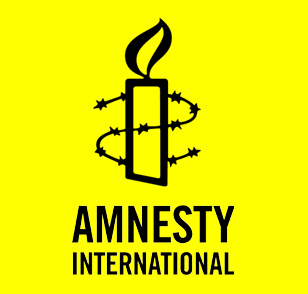- Amnesty International publishes State of the World’s Human Rights report for 2017 to 2018
- Boko Haram killed 411 civilians in 2017
- At least 340 people died in military detention
- Inter-communal violence claimed 549 lives across 12 states
- Human rights defenders continued to face intimidation
Across Nigeria, human rights violations and abuses take different forms and have led to violence and deaths as a result of the armed conflict in the north east and the inter-communal clashes between herders and farmers in at least 12 states.
The report, The State of the World’s Human Rights, covers 159 countries and delivers the most comprehensive analysis of the state of human rights in the world. For Nigeria, it covers the armed conflict, unlawful killings, communal violence, enforced disappearances, torture, freedom of assembly and expression, harassment of human rights defenders, forced evictions, women’s rights, death penalty, corporate accountability and other issues in the last year.
Large scale huma rights abuses unaddressed
The armed group Boko Haram killed 411 people in at least 65 attacks while the group continues to carry out abductions of women, girls and men. As a result, in the north eastern states of Adamawa, Borno and Yobe there are 1.7 million people internally displaced by Boko Haram crisis and thousands are in urgent need of humanitarian assistance.
“Boko Haram is still committing crimes by carrying out suicide bombings targeted at civilians as well as abduction of women, girls and children. Over a million victims of the crisis are living in camps across and beyond the northeast and they are in urgent need of humanitarian assistance,” said Osai Ojigho Director Amnesty International Nigeria.
The military arbitrarily arrested and held thousands of young men, women and children in detention centres around the country. Detainees were denied access to lawyers and family members. At least 340 died in custody.
In August, a presidential investigation panel was set up to probe allegations of human rights violations carried out by the military. This was followed by mass trial of Boko Haram suspects in Kainji military facility.
States across Nigeria are confronted by spate of inter-communal violence between herdsmen and farmers leading to the death of more than 549 people. While the clashes linger, the Nigerian authorities’ response to this violence is totally inadequate, too slow and ineffective, and in some cases unlawful.
“The government must totally overturn its response to these deadly clashes to avoid this crisis getting out of control and claiming more lives. They need to investigate and bring suspects to justice,” said Osai Ojigho
In Lagos state, at least 5,000 people were forcibly evicted from Otodo Gbame and Ilubirin waterfront communities between March and April, in violation of previous Lagos State High Court orders. The orders restrained state authorities from demolishing the homes of affected communities consisting of 300,000 residents.
“Apart from violating court orders by going ahead to carry out forced evictions, during the forced eviction of Otodo Gbame on April 9 last year, at least two people were shot, one fatally, as police fired at unarmed protesters,” said Osai Ojigho.
Disrupting peaceful assemblies and rising intolerance for dissent
Nigerian security agencies continued to, in many cases violently, disrupt peaceful protests. The police continued to deny Islamic Movement in Nigeria (IMN), which was banned by the Kaduna state government in 2016, the right to peaceful assembly. The IMN leader has been in detention for over two years despite a court ruling ordering his immediate release.
Journalists and bloggers face harassment and intimidation largely from security agencies. On 19 January security personnel raided the offices of Premium Times and arrested Dapo Olorunyomi and Evelyn Okakwu after the Chief of Army Staff accused the newspaper of offensive publications.
Expressing personal opinion on social media is becoming dangerous. On 19 September, the Katsina state police arrested three bloggers, Jamil Mabai, Bashir Dauda and Umar Faruq, for criticizing the Governor. Bashir Dauda and Umar Faruq were released after one week and Jamil Mabai was detained for 22 days.
Communities and Human Rights Defenders taking action
Environmental pollution linked to the oil industry continued to undermine the economic, social and cultural rights of the Niger Delta communities. Though the government took steps to address pollution as recommended by UN Environmental Programme (UNEP) in 2011, the local communities expressed frustration at the slow progress of the clean-up. In June, Esther Kiobel and three other widows of four men from the Ogoni region in the Niger Delta who were executed following an unfair trial in 1995, filed a lawsuit in the Netherlands against Shell, demanding compensation and a public apology. Massive military clampdown of supporters pro-Biafra activists saw soldiers killing at least 12 IPOB members in Umuahia in Abia state on 14 September 2017.
Raymond Gold, Maurice Fagnon, Bamidele Friday, Justus Ijeomah and other Human rights defenders (HRDs) who speak up against injustices continued to face intimidation for their work.
“As more people express their dissatisfaction with the state of affairs, demand justice and claim their human rights, we want the authorities to listen, be open for dialogue and act to secure human lives and dignity,” said Osai Ojigho.
2017 ended with a glimmer of hope as President Buhari signs into law the Anti-Torture Act.
Amnesty International Nigeria calls on the government of Nigeria to end impunity for human rights abuses and violations by bringing to justice all suspected perpetrators, including inter communal violence and address the root causes of the violence.
“The government should listen to people when they speak out rather than intimidate them to silence and put in place measures to ensure the realization of the socio-economic rights to adequate housing, health, food and education,” said Osai Ojigho.
